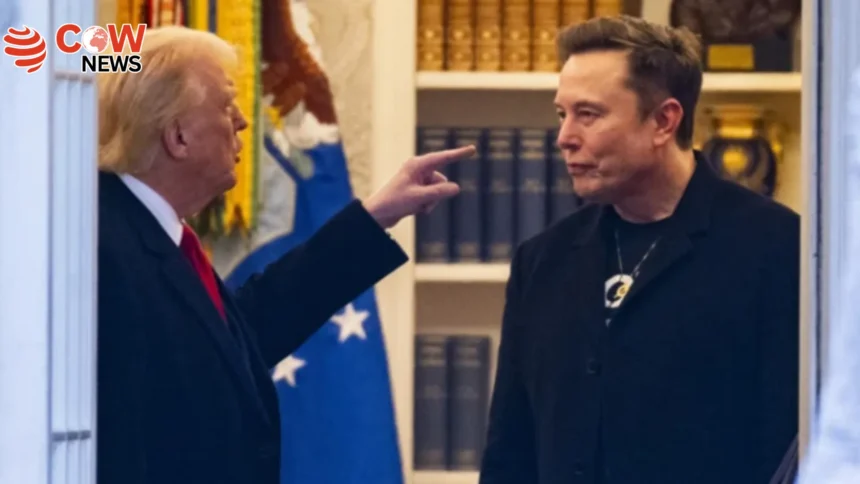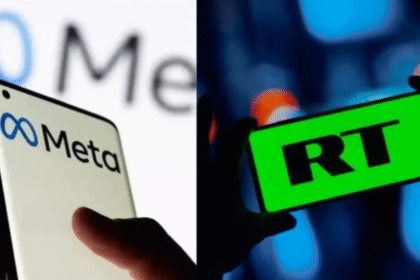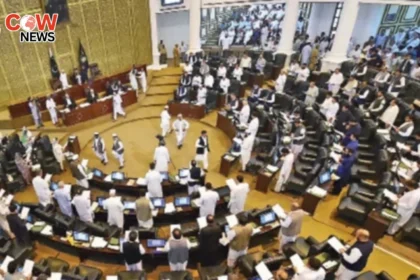In a dramatic shift from their previously close relationship, former U.S. President Donald Trump and tech mogul Elon Musk have now become fierce political rivals, exchanging accusations and threats that have not only stirred public interest but also affected the stock market. What was once seen as an unlikely yet solid partnership has now descended into a bitter public feud, with both men launching serious allegations against each other.
The confrontation began when Musk made bombshell claims about Trump, accusing the former president of being involved in controversial matters linked to convicted financier Jeffrey Epstein. Musk suggested that the real “Donald Trump” could be found in Epstein’s files, and that the Trump administration was actively suppressing these files to avoid political fallout. Musk, known for his bold and often provocative statements, took to social media platform X to share his thoughts, stating, “It’s time the truth comes out. Remember, the truth always comes to light.”
Musk’s accusations didn’t stop there. He further suggested that had it not been for his intervention, Trump would have lost the presidential election, and the Democrats would have gained full control of the U.S. House of Representatives. These allegations have fueled an already heated political environment, deepening the rift between the two influential figures.
In response, President Trump lashed out at Musk, calling his criticism “disappointing” and threatening to cancel lucrative government contracts Musk’s companies, particularly Tesla, have with the U.S. government. Trump, speaking during a televised address, took a personal jab at Musk, claiming he was unaware of the tech entrepreneur’s alleged drug use, a comment that seemed to aim at undermining Musk’s credibility.
The clash escalated further when Musk questioned the speed at which a key bill was approved during Trump’s administration. According to Musk, the bill was passed so hastily that lawmakers didn’t even have time to read it. This criticism added fuel to the already volatile political atmosphere between the two figures.
This growing political battle has had real-world economic consequences. Tesla, Musk’s flagship company, saw a staggering 15% drop in its stock value, a blow that rippled through the stock market and prompted concerns among investors about the long-term impact of Musk’s public feud with Trump. The fall in Tesla’s stock price raised alarms, especially given the company’s history of volatile performance, and further underscored the potential risks involved in Musk’s increasingly polarizing public statements.
In a more bizarre turn, Musk has opened up the possibility of creating his own political party. Asking his followers whether they thought he should form a new political party, Musk’s question ignited fresh debates within U.S. political circles. The suggestion has fueled discussions about the future of American politics and the possibility of Musk positioning himself as a significant political figure, independent of the two major parties.
This latest development is particularly surprising given their history. A few months ago, Trump had entrusted Musk with an important government role, asking him to help with reducing government spending. However, Musk recently resigned from this position, citing disagreements with the administration. The resignation, combined with Musk’s outspoken criticism, has caused a shift in the narrative around his relationship with Trump.
The tensions between Trump and Musk reflect deeper divisions within American politics. While Trump represents the populist right wing, Musk, although a billionaire entrepreneur, has often expressed libertarian views, which at times align with conservative policies but also diverge in significant ways. Musk’s ongoing support for free speech and his challenges to mainstream media have made him a polarizing figure in both business and politics.
The conflict between Trump and Musk also raises broader questions about the intersection of technology, politics, and corporate power in the modern era. With Musk’s companies, including Tesla and SpaceX, being major players in the tech and automotive sectors, his actions and statements carry weight beyond just his personal or political views. The fallout from his ongoing feud with Trump could have long-term consequences for his companies, investors, and the political landscape at large.
As this political drama unfolds, it remains to be seen how it will affect both men’s futures—Trump’s presidential aspirations and Musk’s business ventures. The public feud is undoubtedly one of the most high-profile in recent times, with global implications not just for American politics but for the broader tech and financial industries.







